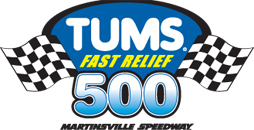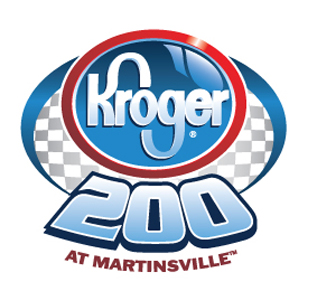 Ford Racing NSCS Notes & Quotes:
Ford Racing NSCS Notes & Quotes:
Tums Fast Relief 500 Advance (Martinsville Speedway)
Saturday, October 27, 2012
FORD FAST FACTS:
· Ricky Stenhouse Jr. and Matt Kenseth gave Ford Racing a weekend sweep of the NASCAR Nationwide and NASCAR Sprint Cup Series races at Kansas Speedway last weekend. This marks the third time in 2012 Ford has captured both events. The first came at Texas when Stenhouse won the Nationwide event and Greg Biffle took the Sprint Cup race. Watkins Glen International proved fertile ground in August when Carl Edwards took the checkered flag in Nationwide and Marcos Ambrose won in Sprint Cup.
· Ford has six NASCAR Sprint Cup Series victories this season, which is one more than 2011. Kenseth leads the way with three while Biffle has two and Ambrose one.
· Kenseth’s win at Kansas was the 24th of his NASCAR Sprint Cup Series career and moved him into sole possession of eighth-place on the all-time Ford win list. He had been tied for that spot with Rusty Wallace.
· Ford driver Fred Lorenzen holds the record for consecutive victories in the NASCAR Sprint Cup Series at Martinsville with four from 1963-65. Six other drivers have won three straight (Richard Petty, Cale Yarborough, Darrell Waltrip, Rusty Wallace, Jimmie Johnson and Denny Hamlin).
· Martinsville hasn’t been very kind to Ford Racing of late as evidenced by the fact that its last victory at the half-mile oval was way back in 2002 when Kurt Busch won the Old Dominion 500 while driving for Jack Roush.
· Richard Petty holds the record for most Martinsville Speedway wins in the NASCAR Sprint Cup Series with 15, and includes a sweep of the two races in 1969 when he drove a Ford. Petty eventually won nine times that season, which was his first and only year driving for the Blue Oval.
When either Carl Edwards, Greg Biffle or Matt Kenseth cross the start-finish line for tomorrow’s Tums Fast Relief 500 at Martinsville Speedway it will signify 3,000 NASCAR Sprint Cup Series starts for Roush Fenway Racing. In that time the organization has won 130 races, 84 poles, and two series championships. Car owner Jack Roush spoke about this latest milestone between Saturday practice sessions.
JACK ROUSH, Car Owner, Roush Fenway Racing – WHAT DOES 3,000 STARTS MEAN TO YOU? “I was not aware of it until somebody brought it to my attention and it’s a milestone for sure. I remember the first year we went to Daytona. Our first race was the Daytona 500 and we didn’t have a garage to start with and then they finally gave us one down at the very end when somebody who had more standing didn’t come. We’ve climbed the ladder. We didn’t win at all, and I think we had one or two poles that first year, and I wasn’t sure we were going to win in the second year until the fall race at Rockingham when Mark won. The sponsors I had were teetering, but that win gave them the green to go forward with us another year. All of the sponsors I had to start with were one-year programs, so that cemented a relationship with Folgers and then Valvoline quickly wanted in, so we were on our way. Little by little we gained the experience and I had enough good people around to make the important judgments that led us to becoming a viable multiple car team. It was really a blessing for the total number of victories we’ve got. If you include our road racing wins and other NASCAR series we’re at about 450 victories now, so running the trucks, Nationwide and Cup – all three – and having the success we’ve had has done a lot to bolster our confidence to help us cement, bring along sponsors, and form the basis for the success we’ve had.”
YOU’VE WON A LOT OF RACES AND CHAMPIONSHIPS, BUT ARE YOU MOST PROUD OF YOUR LONGEVITY IN RACING? “When I started drag racing it was a recreational, after work hours activity that was fueled by youthful enthusiasm. Then as we realized how big the challenges were, I recognized that I needed to generate cash flow and an income stream around it to siphon off enough money to pay for the equipment that my race cars needed, and that has been the trademark of what we’ve done for more than 25 years. We’ve had to look at a series, look at a race car and the rules, and then consider the opportunity to make a viable business out of it by selling the technology and selling the success to other people who would like to bask in it, so the fact we’ve been able to survive for 25 years in Cup racing is more important to me than 300 wins. That’s a more significant accomplishment.”
YOU’VE ACHIEVED A LOT IN 25 YEARS AND HAVE MADE A NUMBER OF INNOVATIONS SUCH AS ROOF FLAPS AND THE EXPANSION TO AS MANY AS FIVE CARS. WHAT STANDS OUT MOST TO YOU IN THAT TIME? “The roof flaps, certainly from a safety point of view, is our biggest contribution. If you look at how we’ve impacted the cars, we were the first ones to make a really viable composite nose and tail. When NASCAR decided to open that up in the early nineties there was a pretty good debate on whether it should be an ABS plastic kind of material, which I guess was favored by ASA and some of the other lower series, or whether we could use some higher technology composite materials and be able to make a better and more easily regulated piece that would better service the teams. We carried the technology that we hadn’t fostered, but we had applied from aerospace to our road race cars and that’s caught on. There were three different ideas of how to do that for a composite nose and tail, and the material and the process that we carried to it has survived and is on every NASCAR car and every truck. You look at what’s happened. Somebody in the early days of NASCAR was responsible for the truck arm or suspension and somebody else was responsible for the double-wishbone front suspension, and I take pride in the fact that I gave a good solution for the nose and tails for all the cars and trucks.”









